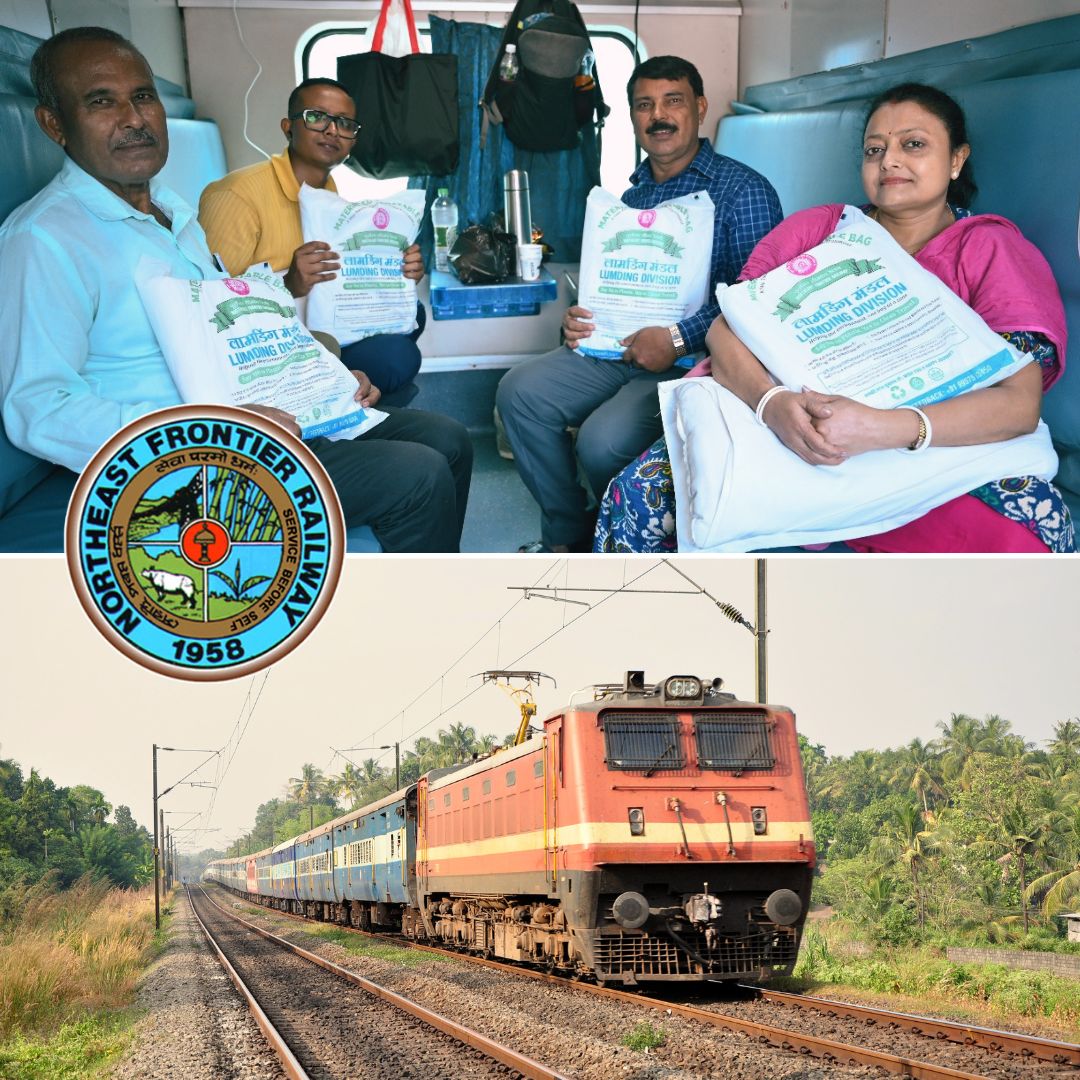The Northeast Frontier Railway (NFR) has become the first railway zone in India to replace plastic packaging for bedrolls with compostable bio-plastic bags. This initiative, launched as a pilot on August 15, 2025, marks a significant step towards sustainable railway operations in the country.
Developed collaboratively with researchers at IIT Guwahati, these eco-friendly bags are now being used across 25 trains originating from northeastern states like Assam, Arunachal Pradesh, Tripura, and also extending to West Bengal and Bihar.
Nearly 40,000 biodegradable bags have already been distributed, underscoring the scale and ambition of this project.
Cutting Down Plastic Waste with Science and Innovation
The compostable bedroll bags are produced using bio-polymers developed at IIT Guwahati’s R&D facility. These bags are engineered to break down naturally and safely in compost settings, leaving no toxic residue behind. The bio-plastic meets Indian Railways’ operational safety standards and supports passenger convenience without compromising on durability.
Prof. Vimal Katiyar, who leads the IIT Guwahati research team, emphasised the environmental benefit of this innovation: “Replacing conventional plastic packaging with biodegradable alternatives will significantly reduce plastic waste and help protect our fragile ecosystems.”
The bags’ introduction coincides with the nationwide drive to phase out single-use plastics, aligning with the government’s sustainability objectives.
NFR’s Broader Commitment to Eco-Friendly Solutions
The bio-plastic initiative complements multiple green measures already implemented by NFR. These include rapid railway electrification to reduce fossil fuel dependence, solar energy generation at select stations, bio-toilets with locally produced anaerobic microbial inoculums for efficient waste management, rainwater harvesting, automatic coach washing plants, and AI-based systems to prevent wildlife intrusions and protect endangered species.
In particular, the production of inoculums at the Kamakhya railway station has drastically improved onboard sanitation and the ecological footprint of train travel. Shri Chetan Kumar Shrivastava, General Manager of NFR, described the shift as “a practical, scalable approach towards greener railway operations and a cleaner environment for all.”
Strategic Importance for the Northeast and Future Outlook
The Northeast region’s rich biodiversity and ecological fragility make sustainable development particularly crucial. By pioneering biodegradable packaging and other eco-friendly measures, NFR serves as a model for environmentally responsible transport solutions in sensitive areas.
The recent signing of a tripartite MoU between NFR, IIT Guwahati, and the Assam Pollution Control Board aims to transform Guwahati Railway Station into a fully functional plastic recycling hub, further highlighting the commitment to circular economy principles.
Experts believe that scaling this initiative nationwide could fundamentally transform Indian Railways’ environmental impact, reducing plastic pollution and leading one of the world’s largest rail networks towards climate-friendly operation.
The Logical Indian’s Perspective
This inspiring collaboration between science and public infrastructure showcases the power of innovation when driven by environmental empathy and responsibility. The Northeast Frontier Railway’s all-encompassing approach, from biodegradable bags to bio-toilets and solar energy, demonstrates that transport systems can nurture both communities and the planet simultaneously.
For passengers, this means participating in travel that respects nature rather than harms it. The Logical Indian urges readers to recognise the potential for such sustainable initiatives to multiply across India’s public services.












